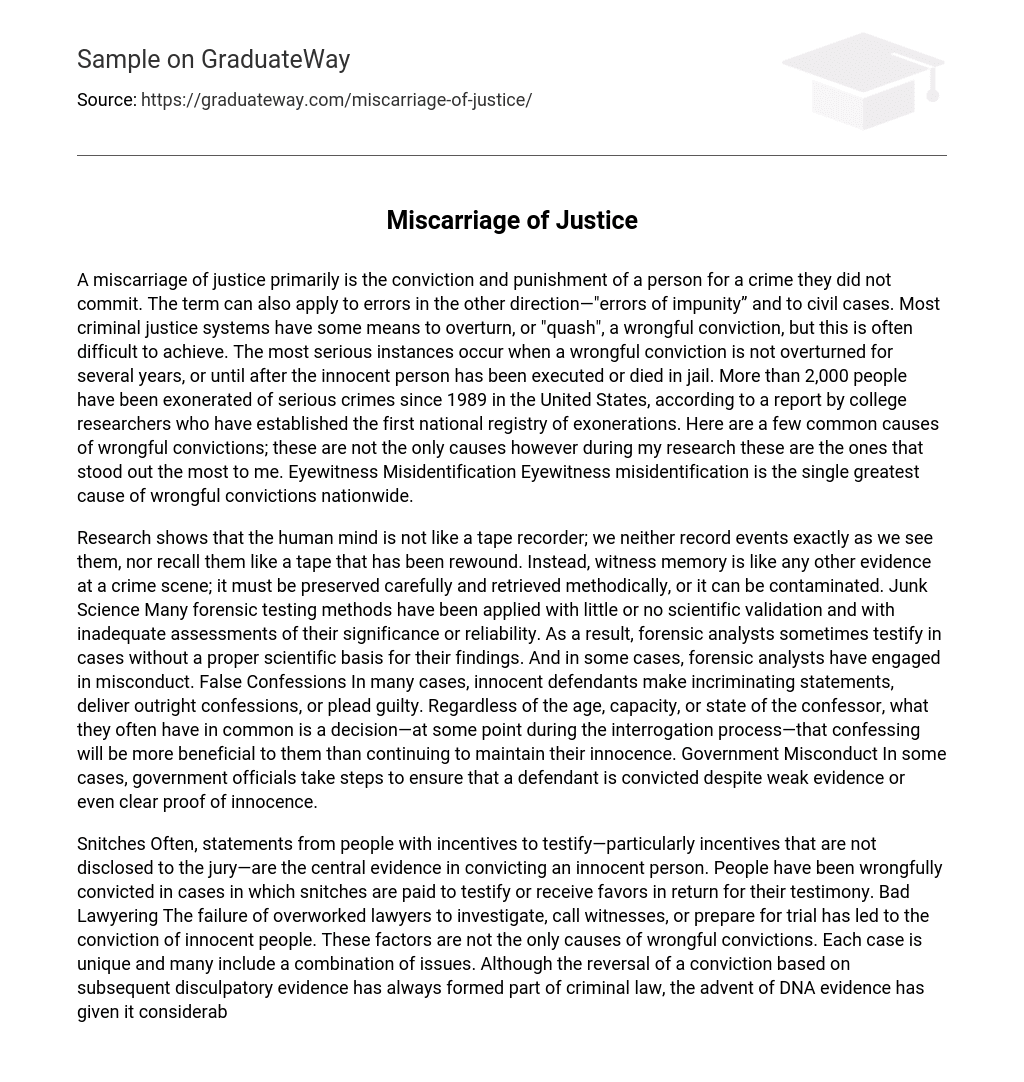A miscarriage of justice primarily is the conviction and punishment of a person for a crime they did not commit. The term can also apply to errors in the other direction—”errors of impunity” and to civil cases. Most criminal justice systems have some means to overturn, or “quash”, a wrongful conviction, but this is often difficult to achieve. The most serious instances occur when a wrongful conviction is not overturned for several years, or until after the innocent person has been executed or died in jail. More than 2,000 people have been exonerated of serious crimes since 1989 in the United States, according to a report by college researchers who have established the first national registry of exonerations. Here are a few common causes of wrongful convictions; these are not the only causes however during my research these are the ones that stood out the most to me. Eyewitness Misidentification Eyewitness misidentification is the single greatest cause of wrongful convictions nationwide.
Research shows that the human mind is not like a tape recorder; we neither record events exactly as we see them, nor recall them like a tape that has been rewound. Instead, witness memory is like any other evidence at a crime scene; it must be preserved carefully and retrieved methodically, or it can be contaminated. Junk Science Many forensic testing methods have been applied with little or no scientific validation and with inadequate assessments of their significance or reliability. As a result, forensic analysts sometimes testify in cases without a proper scientific basis for their findings. And in some cases, forensic analysts have engaged in misconduct. False Confessions In many cases, innocent defendants make incriminating statements, deliver outright confessions, or plead guilty. Regardless of the age, capacity, or state of the confessor, what they often have in common is a decision—at some point during the interrogation process—that confessing will be more beneficial to them than continuing to maintain their innocence. Government Misconduct In some cases, government officials take steps to ensure that a defendant is convicted despite weak evidence or even clear proof of innocence.
Snitches Often, statements from people with incentives to testify—particularly incentives that are not disclosed to the jury—are the central evidence in convicting an innocent person. People have been wrongfully convicted in cases in which snitches are paid to testify or receive favors in return for their testimony. Bad Lawyering The failure of overworked lawyers to investigate, call witnesses, or prepare for trial has led to the conviction of innocent people. These factors are not the only causes of wrongful convictions. Each case is unique and many include a combination of issues. Although the reversal of a conviction based on subsequent disculpatory evidence has always formed part of criminal law, the advent of DNA evidence has given it considerable persuasive effect. Prior to DNA, subsequent evidence, though true, was discounted as usually oral in nature or preferred by a person in-custody. Further, persons convicted are not typically able to subsidize expensive forensic or other investigations into their wrongful convictions I believe that wrongful convictions play a major factor when it comes to people lousing their faith in the justice system. People that are wrongfully convicted are compensated for their time, but the time lost in a person’s life is priceless.





